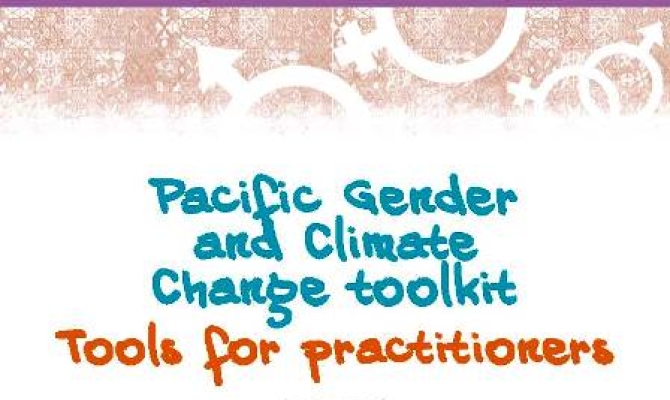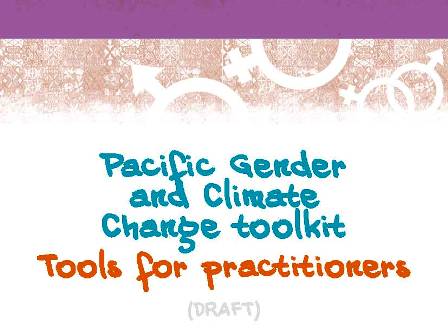
Climate Change Resilience

Pacific Gender and Climate Change Toolkits have been launched and are now available for use as part of a four week review.
The two toolkits are designed to help incorporate a gender perspective in development projects that focus on climate change and renewable energy in the Pacific.
Pacific Island communities are already dealing with climate change-related risks and challenges at the community and national level. Very few of the actions designed to manage these risks but few actively integrate gender.
These toolkits have been developed to support practitioners both with project design and with community implementation.
"Many of my colleagues now understand that climate change may affect men and women differently based on their roles and responsibilities, said Mr. Peniamina Leavai of the Secretariat of the Pacific Regional Environment Programme (SPREP).
"This toolkit will help strengthen their ability to address the different needs of men and women and make use of their skills and knowledge, can greatly enhance the effectiveness of project activities."
The project design toolkit is to assist project managers and those involved in project design undertake gender analysis at different stages in the project cycle to better inform design, implementation and tracking of results.
The community-based toolkit focuses on community-level interventions and tools to enhance participation.
Kuini Rabo from the Secretariat of the Pacific Community (SPC) said, 'In the area of energy use, women are often responsible managing the collection and use of firewood, kerosene, coconut husks, and electricity for cooking. But women are often left out of planning and decision-making on energy projects.'
Countries have been asked to provide comments before the toolkits are finalised.
"We'd really appreciate your support in reviewing our toolkits and to let us know how useful and effective you think the toolkits are, and if there are any other comments or ways we could improve them before finalising, we'll be providing the feedback survey form on the Pacific Climate Change Portal site," said Leavai.
The toolkits have been developed through partnerships of SPC, SPREP, the United Nations Development Programme (UNDP), UN Women and Deutsche Gesellschaft fur Internationale Zusammenarbeit (GIZ).
To visit the Toolkit Tools